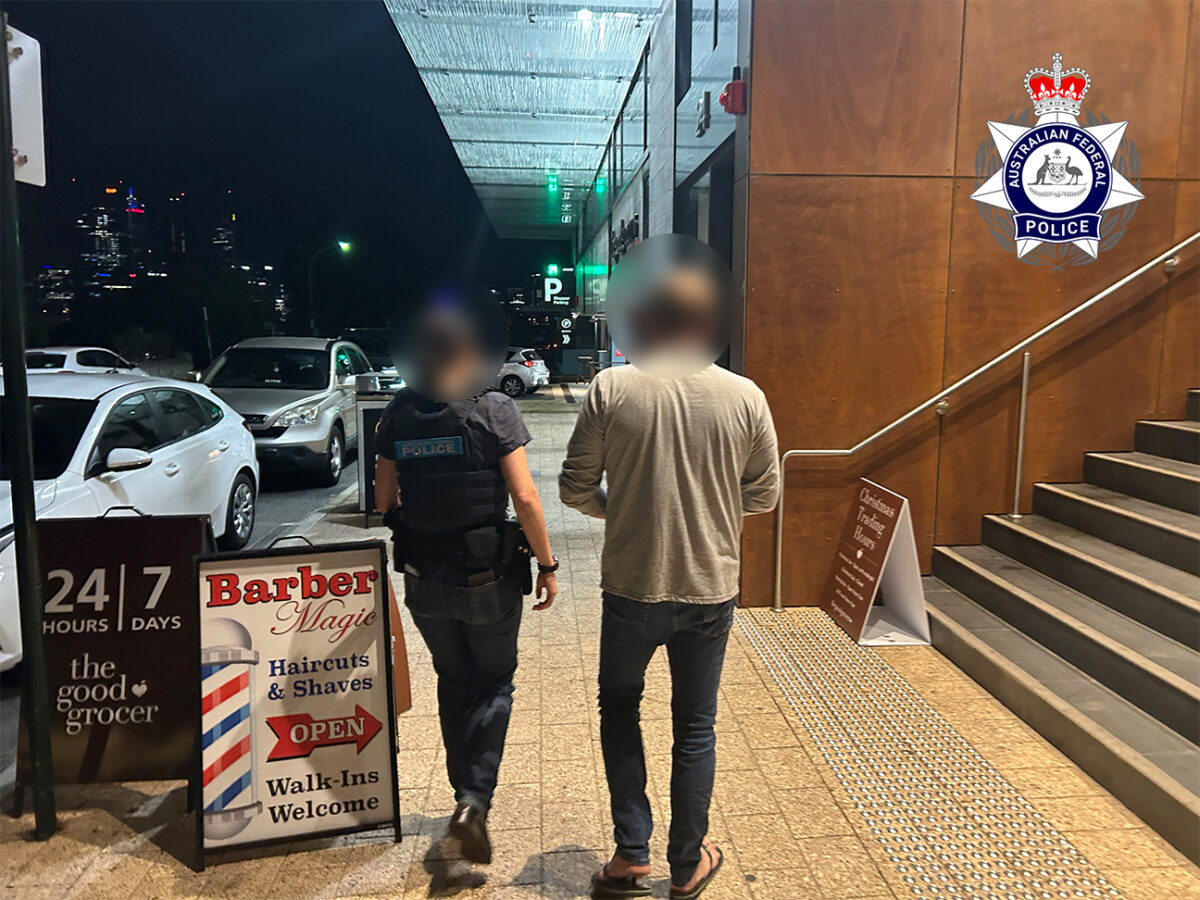Inside the Secretive World of Irish Limited Partnerships
In early June 2019, the Bitsane cryptocurrency platform was a hive of activity.
According to CoinMarketCap, a price-tracking website for crypto-assets, it had a trading volume worth $7 million a day. Bitsane itself boasted of users in over 200 countries.
Within a few weeks, however, the platform, its social media sites and the deposits of close to 250,000 registered users had vanished.
Bitsane customers took to social media, first to question whether there was a temporary issue, then to panic about their deposits, then to angrily compare losses.
Some had invested tens of thousands of dollars into a variety of cryptocurrencies that were offered on the platform.
But from one day to the next, all that was gone.
“I just want to see these bastards in jail,” read a post on one Telegram channel where victims gathered to discuss their experiences.
Where the money went remains a mystery, as does the true identity of who was behind Bitsane.
All that remains are traces of the firm in company forms and documents.
Bitsane was registered in Ireland in 2016, at an address in central Dublin. However, it never had an office there, at least not in the physical sense. The site appears to have been little more than a mailing address that hundreds of other business ventures with no apparent link to Ireland also used.
Documents from Ireland’s Companies Registration Office (CRO) detail that Bitsane’s general partner was an individual who provided a contact address in Lithuania. Its limited partner was a Hong Kong based company whose sole shareholder was based in Belarus. Bitsane’s formation documents, meanwhile, were presented by a London-based agent that specialises in setting up and registering corporate structures.
This same firm has set up dozens of other entities in recent years which, like Bitsane, are Irish Limited Partnerships (ILPs) – a type of corporate vehicle exclusive to Ireland.

The registered Dublin address of Bitsane (Image: Google Street View).
While many of the ILPs registered by this formation agent – and others reviewed by Bellingcat with reporting partner The Sunday Times – may be legitimate businesses, Bitsane was not.
Yet finding out who its true owners are, and thus the individuals behind the operation, is extremely complicated. Any investigation would likely have to traverse multiple jurisdictions including Ireland, the UK, Lithuania, Hong Kong and Belarus. A representative of the formation agent told Bellingcat that they would have responded to all police requests and there is no suggestion that anyone but Bitsane was involved in any illegality. Ireland’s police service, An Garda Síochána, told the Sunday Times there was currently no ongoing investigation into the matter.
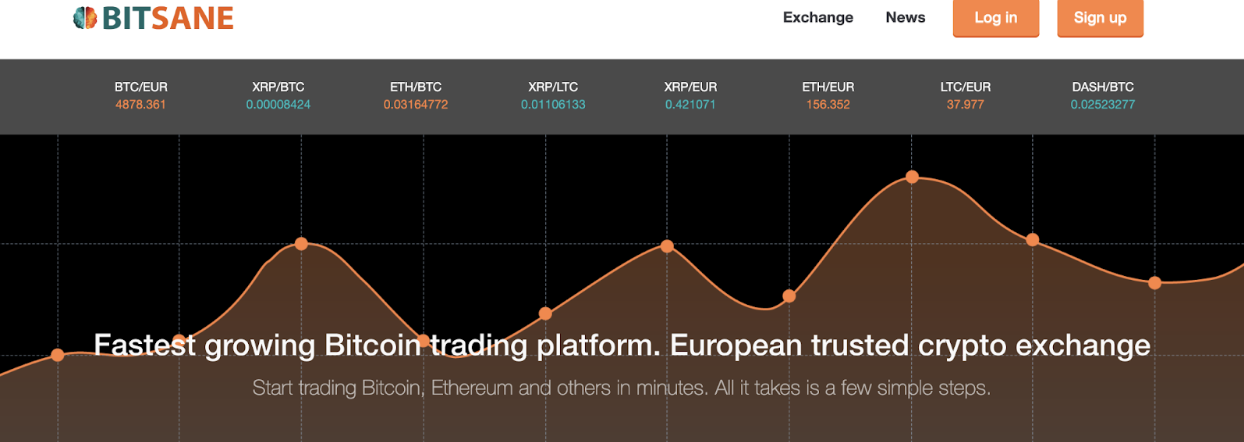
An archived screen grab of Bitsane’s website before it disappeared.
Other ILPs can be even more complex, with partners listed as companies based in secrecy jurisdictions – countries where company records are either not kept or are not divulged to the public.
This means that, thanks to the century-old rules that underpin ILPs, the true owner of any venture does not have to be registered or named. Many partners appear to be generically-named businesses based in the likes of Belize or Seychelles, something that experts believe leaves ILPs open to abuse.
The ILP Rush
Bellingcat was able to analyse the true extent of ILP usage, and the complex structures they often create, by downloading and reviewing thousands of documents from the CRO over the past few months.
What this material shows is that almost 1,000 ILPs with opaque ownership and partners in secrecy jurisdictions have been formed since 2015.
The rate at which ILPs are being formed, meanwhile, has been unprecedented in recent years. Records show that just over 1,000 ILPs were created between the early 1900s and 2014. However, that figure is dwarfed by the 2,400 that were set up between 2015 and 2021, 70% of the total number of ILPs ever created.
This ILP rush was even observed by the CRO itself in 2017 when it noted in its annual report that a record number (676) had been registered.
The documents seen by Bellingcat and The Sunday Times also show that:
- Hundreds of ILPs were formed by the same agent.
- More than 1,250 ILPs were registered at just three mailing addresses in Dublin and Cork.
- The rate at which ILPs were being formed shot up after legislation that was designed to reveal the true owners of Scottish Limited Partnerships (SLPs) was introduced in the UK. Some SLPs were previously reported to be involved in major international scams.
- One individual based in the Seychelles was a general partner in almost 150 ILPs while a Romanian national was the controlling partner in more than 370 ILPs.
- In certain cases, ILPs could be found attached to imports and exports both into and out of a variety of countries, but predominantly Russia and Ukraine. No information could be gleaned about their true owners.
According to Declan de Lacy, a restructuring partner with Dublin accountancy firm PKF O’Connor, Leddy & Holmes, ILPs have historically allowed partners to invest in a business while capping their liability to the amount they contributed. They have proven useful for the likes of investment funds, family partnerships and property investments, de Lacy said, with tax only paid by partners on their share of the profits.
However, de Lacy added that ILPs have also become an effective way to set up an entity whose beneficial owner cannot easily be identified. “The partners can be, and often all are, companies from jurisdictions that allow complete anonymity and are regarded as high risk from a compliance perspective,” he said.
Graham Barrow, a UK-based expert on limited partnerships, said those behind ILPs only have to provide “very limited information about who they are, there’s no filing requirements, no verification; it’s just a couple of names on a bit of paper and an address. So that becomes a wonderfully opaque method of hiding ownership and control.”
What Exactly is an Irish Limited Partnership?
ILPs came into existence as part of the United Kingdom’s 1907 Limited Partnerships Act. At this time, Ireland was still a part of the UK.
The same act brought into existence Scottish Limited Partnerships (SLPs), a corporate vehicle exclusive to Scotland. Bellingcat has previously produced a number of reports concerning the alleged misuse of SLPs after a series of high-profile money laundering schemes came to light.
These include a fraud that was estimated to have illegally extracted US $1 billion from banks in Moldova in 2014. In 2017, two SLPs were used to funnel billions out of Azerbaijan to be spent on luxury goods and to peddle political influence in Europe. SLPs played a major role in the Russian Laundromat scandal, where $20.8 billion was moved out of Russia through a network of banks worldwide.
SLPs, like ILPs, had limited filing requirements and did not require the ultimate beneficial owner (UBO) of the partnership – the person who ultimately controls a business – to be named.
SLPs could also be registered to companies in secrecy jurisdictions – adding another layer of opacity to shield the true identity of a company’s owner. In 2016, at least 71% of all new SLP registrations were controlled by companies in secrecy jurisdictions.
New person of significant control (PSC) rules were introduced in the UK in 2017 in an attempt to ensure the true beneficial owners of SLPs would have to be revealed. Further investigations after this legislation was enacted found that the vast majority of beneficial owners of SLPs were based outside in the UK, mostly in Ukraine and Russia.
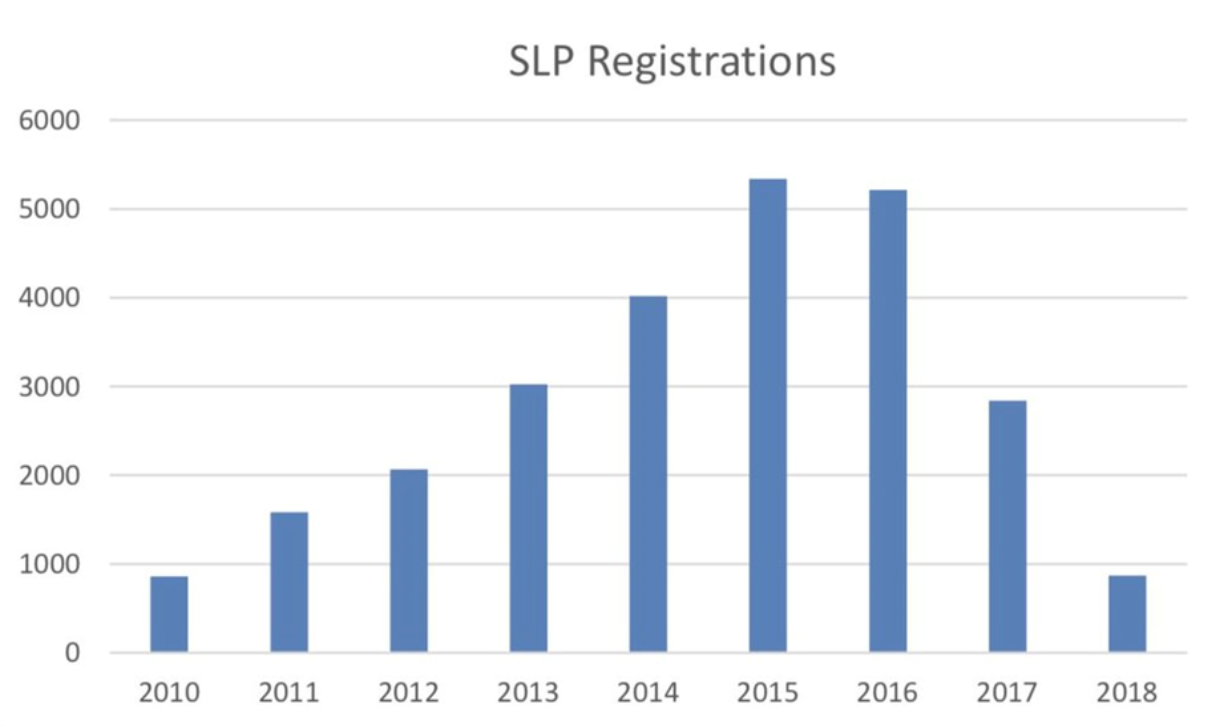
The number of SLPs registered dropped after legislation that required beneficial owners to be named was passed.
SLP numbers soon began to dwindle.
ILPs, however, were not covered by this new legislation (given the Republic of Ireland has now long been independent from the UK) and still offered similar benefits to those originally offered by SLPs. From 2015, their numbers began to increase sharply.
When asked about this rise, a spokesperson for Ireland’s Department for Enterprise, Trade and Employment told The Sunday Times that the reasons for this were not entirely clear but Brexit and a tightening of the UK LP [limited partnership] regime could have been a contributory factor.
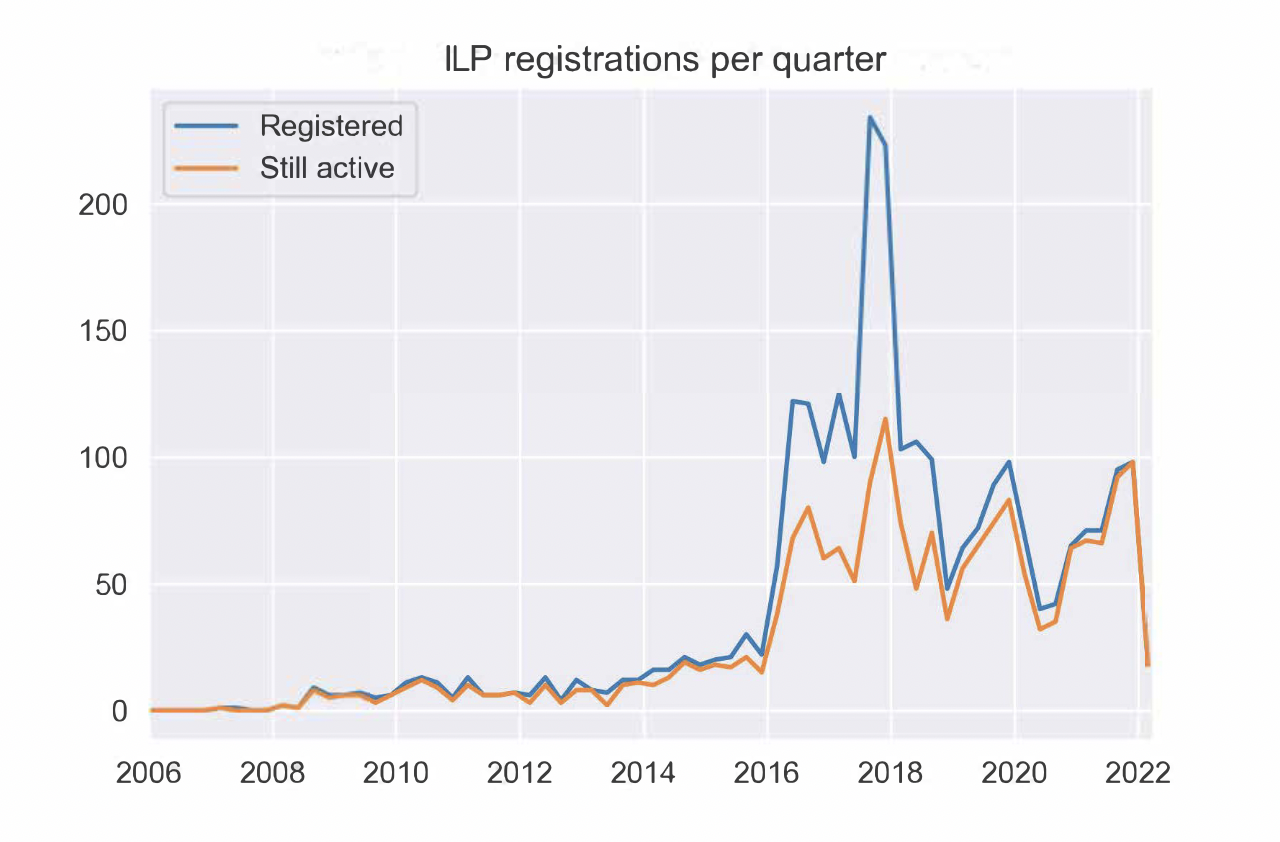
Irish Limited Partnership registrations since 2006.
Some of the same formation agents that Bellingcat previously identified setting up SLPs began to register ILPs around this time. Among the most prodigious was LAS Fiduciary, which set up roughly one in five of the nearly 676 newly created ILPs in 2017. Records for LAS Fiduciary reveal that one of its directors was also an officer at the similarly named LAS International (UK). LAS International (UK) was itself the formation agent for 39 ILPs between 2015 and 2021, including Bitsane.
Bellingcat has written about LAS International (UK) previously after it registered 1,632 SLPs over a two year period.
Emailed responses to questions sent by Bellingcat to a contact address on LAS Fiduciary registration documents, and signed off by a Ms Elena Yael Dovzhik (who identified herself as a former director of LAS Fiduciary and LAS International), said that both companies had terminated operations and had filed for voluntary dissolution last year.
Still, she said that all Know Your Customer (KYC) checks had been carried out when they had been operational, that as a formation agent they had never been involved in any of the business activities of their clients and that if a beneficial owner was accused of illegal activity their services were terminated. All beneficial owners were declared when required, she added, and that they have always responded to police investigative queries.
Yet Dovzhik’s emailed comments also stated that: “we are aware that many years ago we filed registration documents for some companies that eventually were accused in unlawful activities, but such information was not available to us prior registration”. It added that “this is a problem of any company formation or filing agents as there is always a certain percentage of potentially unlawful businesses of any type or form”.
As a formation agent, Dovzhik said they could not have expected company owners to have abused ILPs in the way that they did. The same was true for any SLPs that may have been abused, she said, and that they would “never provide any service to a company that was used for unlawful activities”.
LAS International terminated all services to Bitsane when the company became aware of the scam via news reports, Dovzhik said. She added that if there was any police request “we would have provided them with all relevant information that is allowed to be disclosed to certain authorities”.
There is no suggestion that LAS International, LAS Fiduciary or anyone employed at these organisations acted outside the law. The full emailed responses from Dovzhik can be seen at the bottom of this article. Records show that LAS International (UK) has been dissolved.
ILPs From the Seychelles to Belize
The attractiveness of ILPs to individuals or organisations who appear to have no connection to Ireland is clear from the data analysed by Bellingcat and The Sunday Times.
Just under 800 ILPs that were registered during the period monitored by Bellingcat (between 2015 and 2021) had an Irish general partner – making up less than a third of the total formed.
In total, 501 of the ILPs registered in 2017 alone were controlled by general partners based in the Seychelles or Belize. This amounted to 74% of the ILPs registered in 2017.
At that time, both countries were included on an EU tax jurisdiction watchlist, although they have since been removed. General partners of ILPs formed between 2015 and 2021 were also based in other countries with limited reporting requirements such as the British Virgin Islands, Panama and the Cayman Islands.
While many legitimate businesses may choose to structure themselves in this way and there is nothing wrong with forming a company in this manner, experts say the discretion such setups provide can also be beneficial to those with more nefarious aims.
Barrow said that the aim of money launderers, scammers and international criminals was to build a complex, multi-jurisdictional web that cannot be traced. “You could have an Irish Limited Partnership but it is owned by a couple of Marshall Islands companies, and they bank in the Baltics, and the controllers of those companies might themselves be Panamanian,” he said. That kind of complexity “makes it impossible to do any form of law enforcement.”
John Devitt, chief executive of Transparency International Ireland, said he would be “very surprised” if Irish Limited Partnerships were not being used by international criminals given “they allow for companies registered in jurisdictions with weak rule of law to form the partnerships.”

Illustration (c) Ann Kiernan.
Although Bellingcat was eventually able to identify a disproportionate number of Ukrainian and Russian nationals controlling SLPs in previous investigations, it was not possible to draw such firm conclusions with ILPs given the limited data on beneficial owners currently available. However, some ILPs did appear to be enabling companies to bypass Person of Significant Control (PSC) requirements in the UK.
As many as 51 ILPs were named as PSCs for UK companies, almost all of which were SLPs. All of the 51 Irish partnerships in question had general partners based abroad, either in Bulgaria or Belize.
While this practice is not illegal, it does potentially appear to get around the spirit of ensuring persons of significant interest are detailed for UK companies.
Unlike the UK, Ireland is a European Union member and has transposed the EU’s fifth anti-money laundering directive into law, setting up a register of beneficial ownership for companies.
However, ILPs fall outside the scope of these regulations which only refer to corporate and legal entities that are incorporated. Unless the partners of an ILP are themselves such entities there is no requirement to reveal this information.
The Price of Transparency
Obtaining what data there was for Bellingcat’s previous investigations into SLPs proved to be far easier than gathering the same information for ILPs.
Companies House, which hosts information about businesses in the UK is free to browse and all data held there can be downloaded at no price. The same level of detail in corporate documents for Irish entities must be purchased.
For every document requested, a price of 2.50 Euros ($2.67) was applied, ensuring a further barrier to investigation given thousands of documents were required to conduct a thorough analysis. Bellingcat purchased the formation documents for every ILP registered since the beginning of 2015 – when ILP registrations shot up rapidly – at a cost of 6,000 Euros ($6,300) with funds provided by an Investigative Journalism for Europe grant.
This data was collated to show details of partners, their location and their formation agents.
Bellingcat also searched for the business activities of every partnership, to ascertain whether there were any potential red flags surrounding illicit or suspicious activities.
More than 600 of the roughly 2,400 ILPs registered since 2015 have an online presence of some kind. Some were clearly legitimate businesses, including hedge funds, financial investment ventures and even a sourdough bread business. But questions remained over others.
For example, dozens of those 600 websites contained no clear indication of what the ILPs actual business was. No contact details were displayed other than the address of the registered office, which was often just a mailing address. Some of the sites appeared to be filled out with stock photographs and other generic imagery.
Bellingcat also put the name of each ILP in its database into ImportGenius, a website that tracks international import and export data, yielding a large number of results. The names of ILPs could be found attached to imports and exports to and from a variety of countries, but predominantly Russia and Ukraine.
One company was recorded as having traded with a subsidiary of a state-owned mining company in Russia. A further 71 ILPs appeared to be acting as trade intermediaries for shipments of goods coming out of Russia and Ukraine. Four ILPs formed during a short time period by the same formation agent, meanwhile, shared their name with companies in Russia that operate crude oil tankers.
Again, none of these companies were required to reveal their beneficial owner and no further information could be discovered about them.
Other ILPs included a dating platform that advertised Ukrainian women to foreigners, a Russian app that claims to promote job offers in the modelling field, a Russian “webmodel agency” and a Russian visa service. There is no evidence suggesting any of these companies are engaged in illegal activities.
One individual based in the Seychelles was a partner in close to 150 ILPs. In 2018, one of these ventures was subject of a press release by the Central Bank of Ireland warning that it was an unauthorised investment firm. The formation agent for this ILP was LAS Fiduciary. When asked about this Dovzhik said by email that it operated as a virtual filing agent for international corporate clients such as lawyers and accountants and that it was never involved in any of its former clients’ business activities. It added that it was not aware who identified this client as an unregulated financial agent, nor when this happened, and that it only assisted clients with their formation process and filings.
ILPs for sale
Irish Limited Partnerships in and of themselves also appear to be a lucrative business.
Some were found being advertised on a variety of websites and spreadsheets online. ILPs were advertised in Russian, suggesting they were being targeted at an audience in that country or in the nations of the former Soviet Union where many residents also speak Russian.

A spreadsheet with Russian titles and headings found online advertising ILPs.
The cost of registering an ILP is less than 50 euros, but to buy a partnership from a formation agent off-the-shelf (with an existing track record of operation) the cost can run into hundreds or even thousands of Euros.
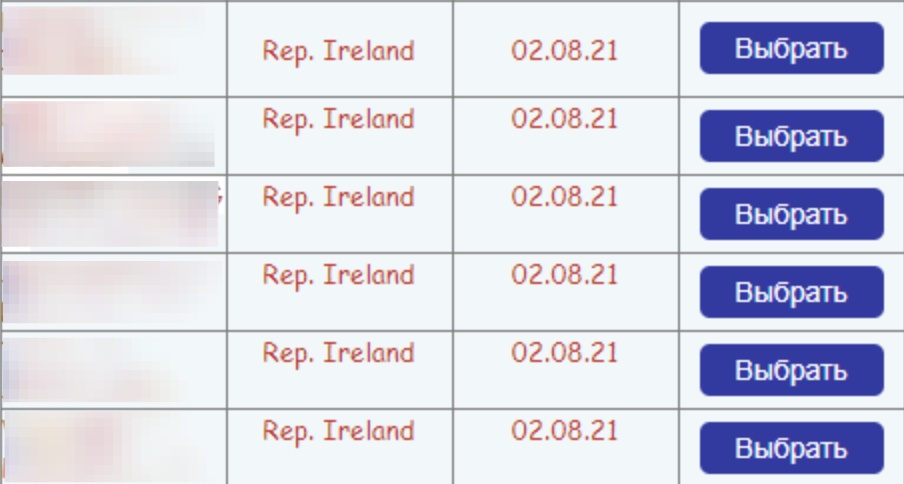
A screen grab shows ILPs for sale on a Russian language website.
Authorities in Ireland have no mechanism to control the activities of websites in Russia selling their corporate vehicles.
On some websites, various administrative functions are advertised to assist customers with corporate filings, the provision of registered offices and due diligence filings. It is thus entirely possible that the true beneficial owners of these partnerships will never need to register their name on any document related to the business.
The lack of a need for Irish residency for partners, the advantage of having a company in an EU country and tax advantages are all touted as selling points of ILPs on these websites. The value of using corporate entities as partners is also detailed.
A spokesperson for Ireland’s Department of Enterprise, Trade and Employment (DETE), which oversees the CRO, told The Sunday Times that it was “currently conducting a review of the Limited Partnership Act 1907 and that review will consider the issue of beneficial ownership and how best to ensure transparency”.
It added: “This review is due to conclude shortly, with a view to bringing a General Scheme to Government as soon as possible.”
Without a more robust system of due diligence or a register of beneficial owners for ILPs, however, the threat of another Bitsane-type scam remains.
Full Emailed Responses from Elena Dovzhik
Your request was forwarded to us regarding former activities of LAS FIDUCIARY in Republic of Ireland, as all of our companies fully terminated their business activities while ago.
Thank you for your email and an opportunity to have our say in this unpleasant situation with our former clients.
We are not sure who and when identified LAS FIDUCIARY’s client’s activity as “an unauthorised investment firm” as LAS FIDUCIARY only operated as virtual filing agent in the Republic of Ireland, on behalf of international corporate clients (such as International Lawyers and Accountants). We never been involved in any business activities of our former clients and only assisted our clients with their company’s formation process and filings.
While other journalists and investigators are making their assumptions, without full understanding of company formation and-mail forwarding services industry, we would like to clarify that at the sale point of our services we are obliged to collect all KYC information (according to AMLR) and our clients only declare to us their intentional business activities for newly incorporated companies, before their bank accounts are being open and their trading activities start.
All companies had to declare their Beneficial Owners (if applicable) before any filing order was accepted by our representatives.
Yes, we are aware that many years ago we filed registration documents for some companies that eventually were accused in unlawful activities, but such information was not available to us prior registration. This is a problem of any company formation or filing agents as there is always a certain percentage of potentially unlawful businesses of any type or form i.e LTD, LLP, LP, etc.
The popularity of LIMITED PARTNERSHIPS in the UK & Republic of Ireland was explained to us by the low cost of their annual maintenance, as there is not legal requirements for them to file Annual Financial Statement and in most cases absence of Annual Return filing requirement (unlike LTD). But we could not expect that this form of company (LP) will be abused by its owners in unlawful ways.
How the company formation agents can be responsible for this is they do all KYC checks before any trading starts? Please clarify to us any logic behind the accusation for LAS INTERNATIONAL being the formation agents of companies such as BITSANE and defrauding thousands of people? This information came to light after any formation/filing services were provided to this company and any further services were terminated with immediate effect for such clients. We always responded to any police investigative queries with requested KYC information and never supported any unlawful business activities of our former clients.
We had enhanced Due diligence for all international clients and collected all required KYC information. If any of our clients was ever reported to us as being under suspicion of being involved in unlawful activities , their services were terminated with immediate effect , as this is a breach of our Terms & Conditions. Yes, we cooperated with professional intermediaries-resellers (such as Lawyers and Accountants) from worldwide, who requested and purchased our services for their multiple individual clients. Many of them were from Eastern Europe and are considered as “high risk”. The Company/LP/Partnership’s structure is always decided by the client/owner and we never been involved in this decision making process.
Due to negative publicity and abusive use of LIMITED PARTNERSHIPS by international clients we stopped providing this type of entities with any further filing services.
——-
I personally was not approached by anyone in relation to the legal proceedings against this company [Bitsane]. But if there was any police request in relation to this company, we would have provided them with all relevant information that is allowed to be disclosed to certain authorities. We found out about this issue from media publications and terminated any further services with immediate effect.”
All KYC information was obtained by our team before any services were provided to these clients and this company was formed in 2016. Declaration of Beneficial Owner is part of any KYC compliance process (if this was applicable ). According to GDPR we are only allowed to disclose this information to specific authorities.”
Yes, we assisted with filings of incorporation forms for Scottish Limited Partnerships years ago. At that time, we did not expect that this type of company will be abused in such way, as we attributed their popularity to the low annual maintenance cost (absence of annual filing requirements for Limited Partnerships).
Usually, we were notified by a police department on investigation process against some companies that used our mail-forwarding address or sometimes this information comes to us from media publications. As I mentioned before, we terminated our services with immediate effect for such companies as this is breach of our Terms & Conditions. We would never provide any service to a company that was used for unlawful activities, as this was not the original reason declared to us by the clients, prior the company’s formation/filings.”
Due to negative publications and frequent police requests in relation to Limited Partnerships we terminated any further formation filings for this type of companies. LAS International (former name) and LAS Fiduciary filed for voluntary dissolution during last year. This also relates to our partner’s company Company Formation Advice Ltd.
Logan Williams contributed to this story.
Bellingcat is a non-profit and the ability to carry out our work is dependent on the kind support of individual donors. If you would like to support our work, you can do so here. You can also subscribe to our Patreon channel here. Subscribe to our Newsletter and follow us on Twitter here.
The production of this investigation is supported by a grant from the IJ4EU fund. The International Press Institute (IPI), the European Journalism Centre (EJC) and any other partners in the IJ4EU fund are not responsible for the content published and any use made out of it.
